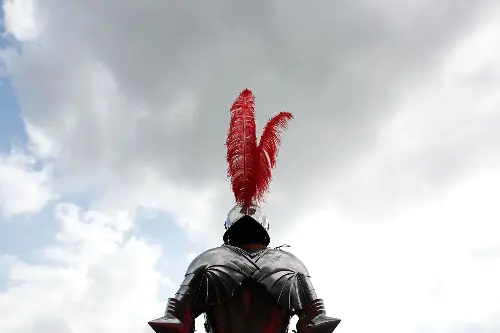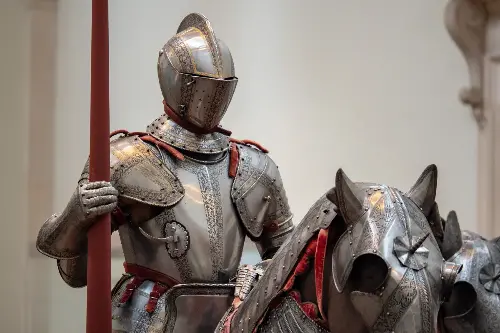The roots of chivalry, a concept that conjured images of gallant knights and honourable conduct, traces back to medieval Europe. Originating as a military ideal in France, the principles of chivalric conduct gradually permeated English society, profoundly shaping both the historical narrative and cultural ethos of England. The chivalric code, with its emphasis on courage, honour, and loyalty, played a significant role in transforming the behavioural norms of English knights, who stood as bastions of these high moral standards.

Knightly virtues: more than mere bravery
Central to understanding how chivalry shaped English history is comprehending its basic tenets. Essentially, chivalry was the code of conduct for knights, advocating a combination of warrior ethos, personal virtue, and gentle conduct. Key virtues such as loyalty to the sovereign, defence of the weak, and respect for women not only defined the personal honour but also the societal role of a knight. Far from the simplistic view of knights as elite warriors, these individuals were also expected to be paragons of moral virtues, thus setting standards for behaviour in broader society.
The influence of chivalry on English governance
Chivalry's impact was not limited to personal ethics but extended to governance and justice in England. Many English monarchs, from Henry II to Edward III, endorsed and promoted chivalric values to reinforce their governance and solidify their reigns. The creation of knightly orders, such as the Order of the Garter established by Edward III, aimed to bind the aristocracy to the crown through a shared commitment to these chivalric ideals. The ethos of these orders emphasised loyalty, bravery, and service, qualities that both embellished the dignity of the monarchy and inspired knights to act as upright leaders in society.
Public pageantry and the social function of chivalry
The public life of chivalry found expression in jousts, tournaments, and the tradition of heraldry, all of which were steeped in the chivalric code. These events were not merely spectacles of prowess and entertainment but served vital social functions — affirming alliances, displaying loyalty to the crown, and resolving conflicts in a controlled, ritualistic manner. Tournaments, in particular, helped inculcate the values of courage and honour both within the participating knights and the wider populace, who admired and emulated these ideals.

Chivalry and the English literary canon
The narrative of chivalry significantly influenced English literature, with its ethos vividly captured in works like Geoffrey Chaucer's "The Canterbury Tales" and Sir Thomas Malory's "Le Morte d'Arthur". These texts not only immortalised the virtuous exploits of knights but also played a crucial role in propagating the ideals of chivalry across different strata of society. Through these literary works, the chivalric code was celebrated, critiqued, and cemented in the cultural imagination of England.
The transformation and legacy of chivalric virtues
While the literal role of knights in armour faded away, the chivalric virtues continued to influence English society well into the modern era. Concepts derived from chivalry, such as gentlemanly behaviour, fair play, and honour, remain interwoven with the ideals of contemporary British society. The echo of chivalry resonates in modern discussions on ethics, leadership, and morality.
In conclusion, the chivalric code significantly moulded English history and societal structures, transcending its medieval origins to leave an indelible mark on the cultural and moral landscape of England. Through the lens of chivalry, English knights embarked on a quest for virtue that redefined honour and loyalty, principles that continue to inspire and shape ideals to this very day.
